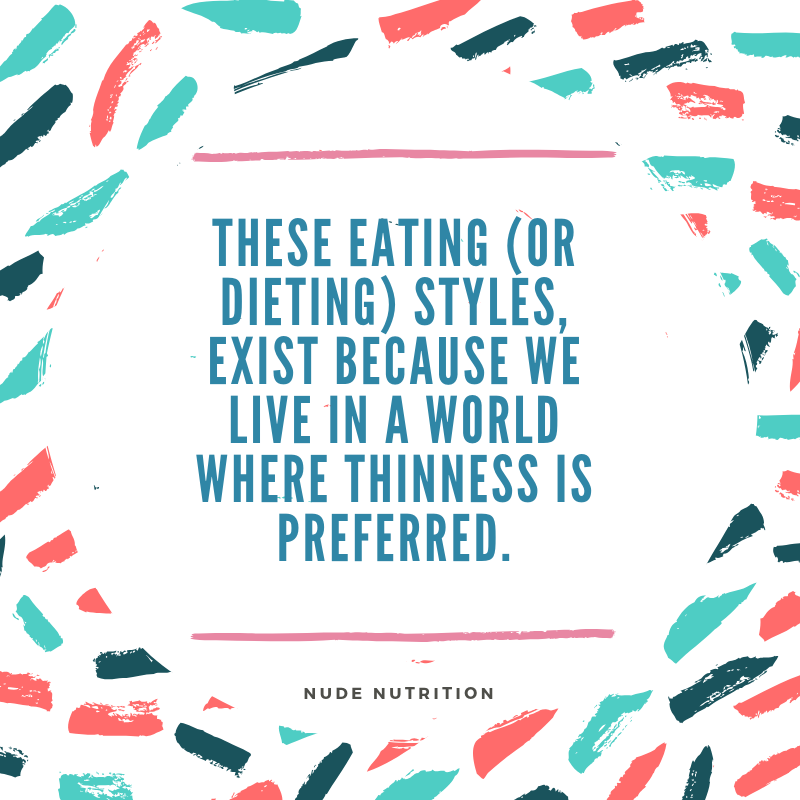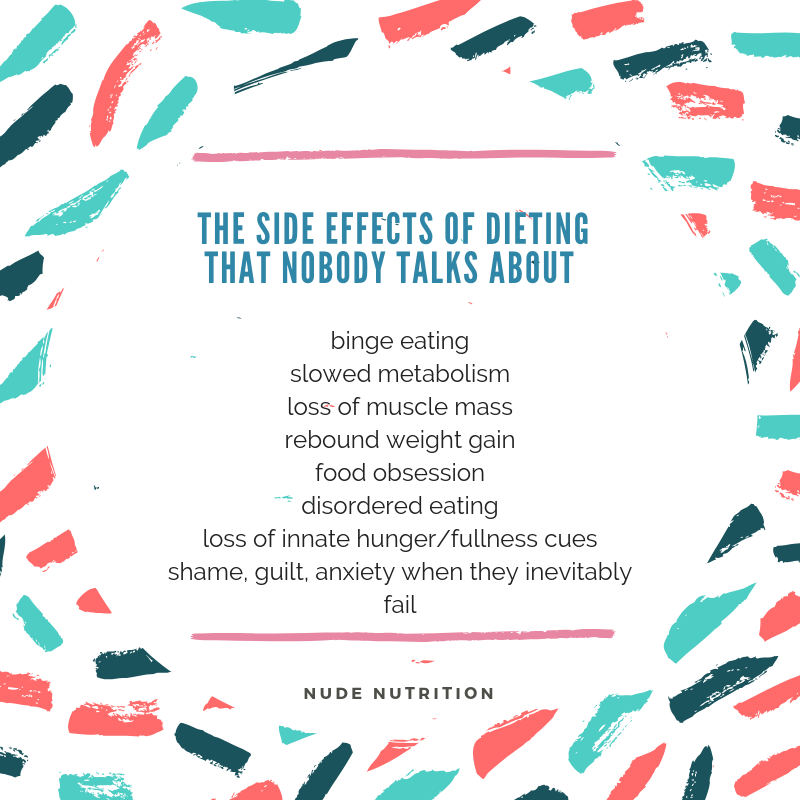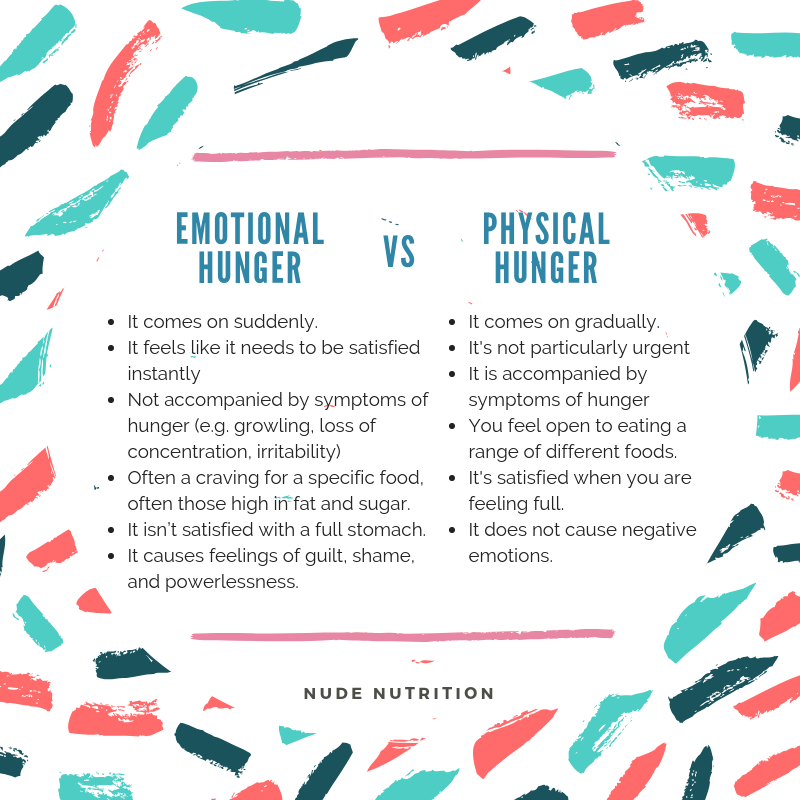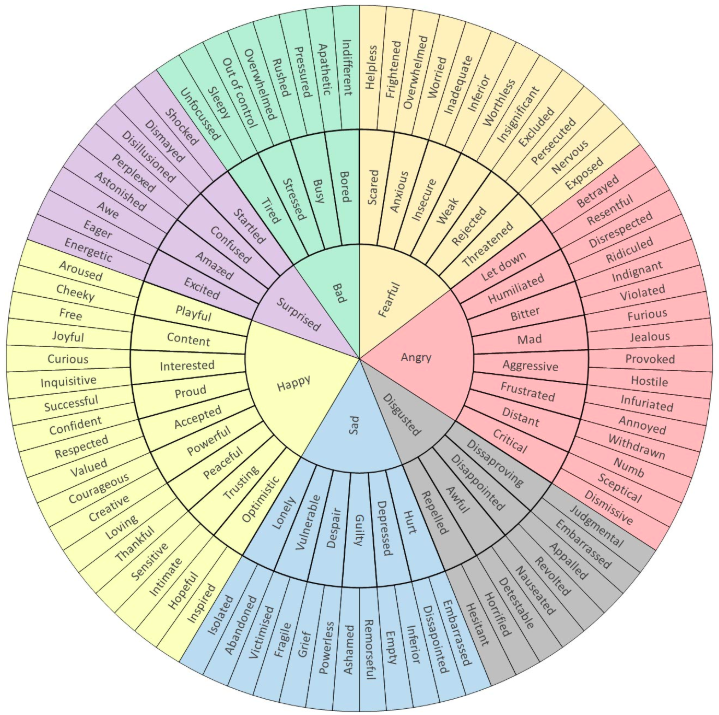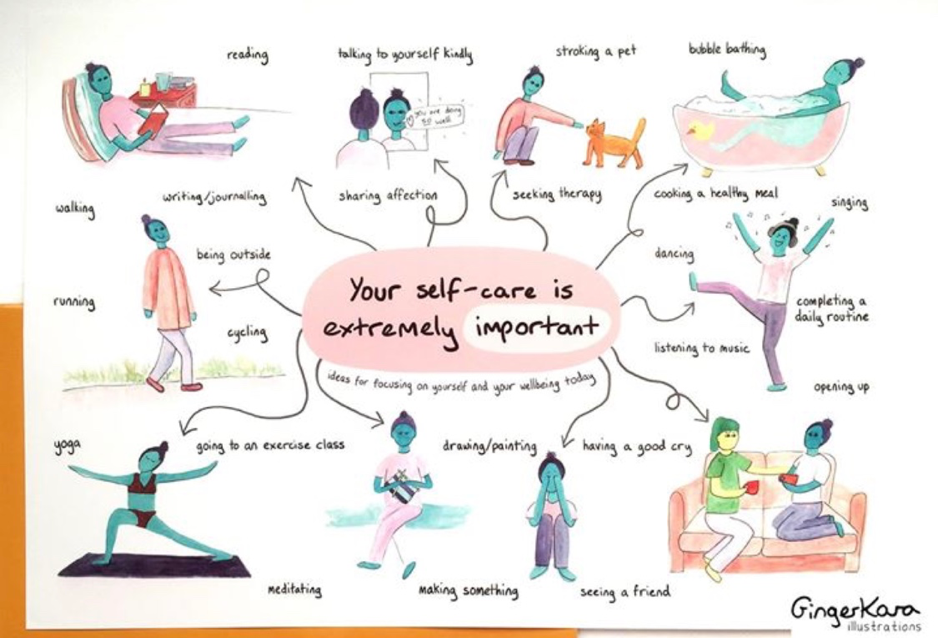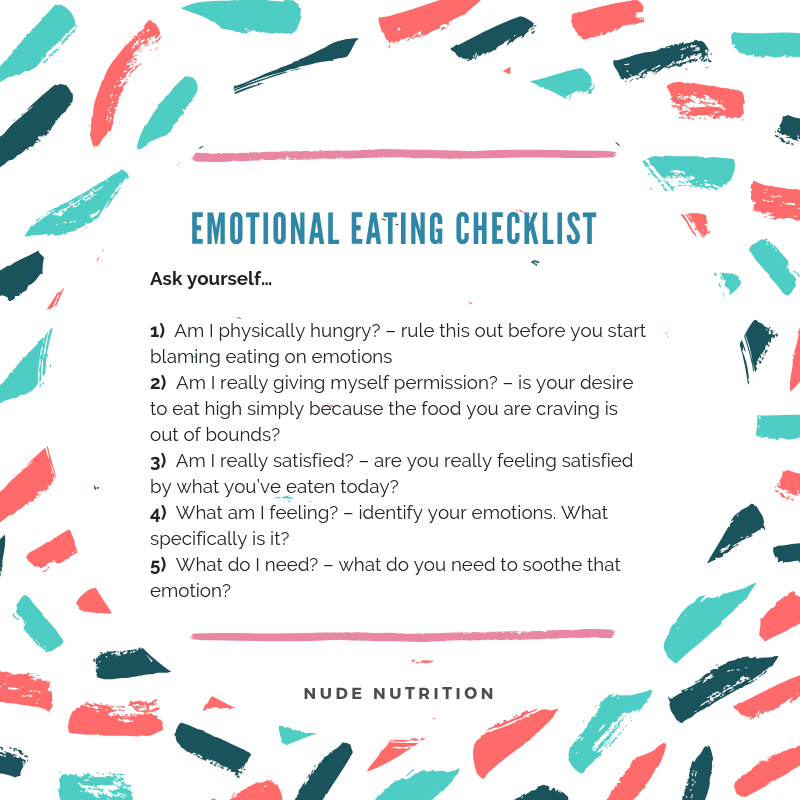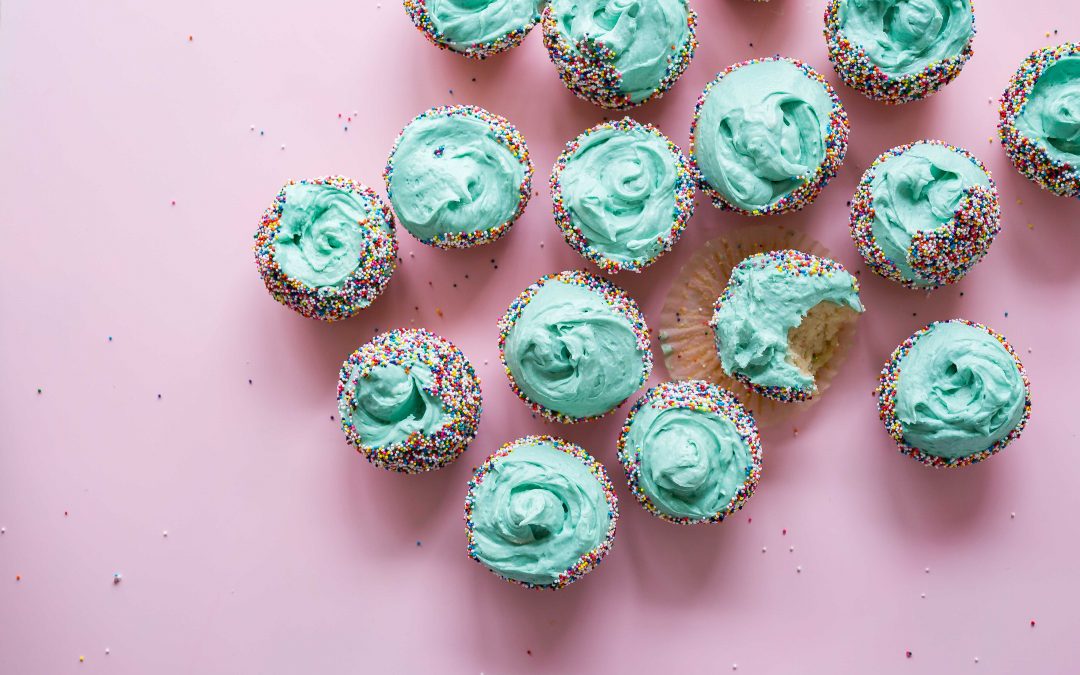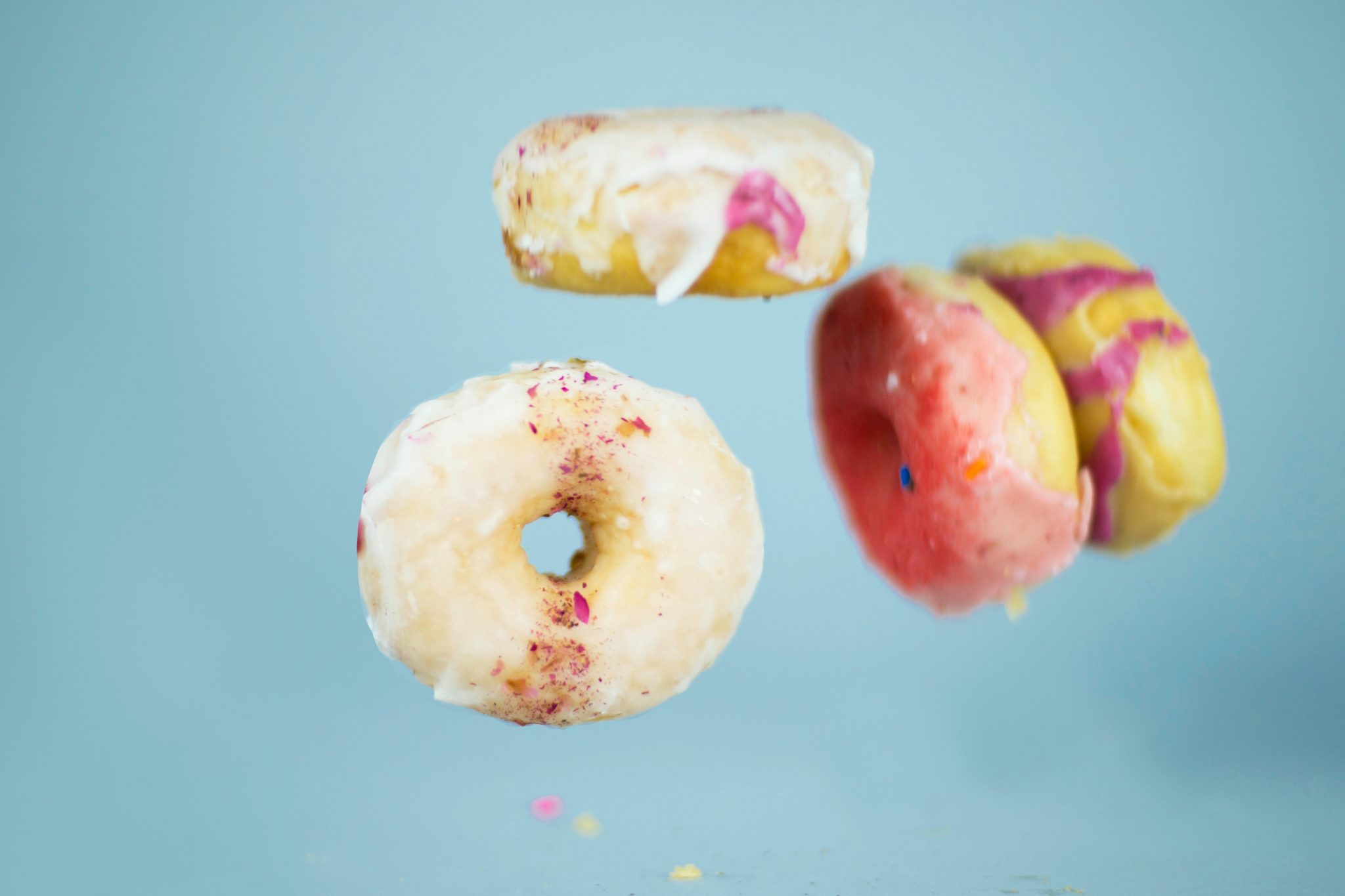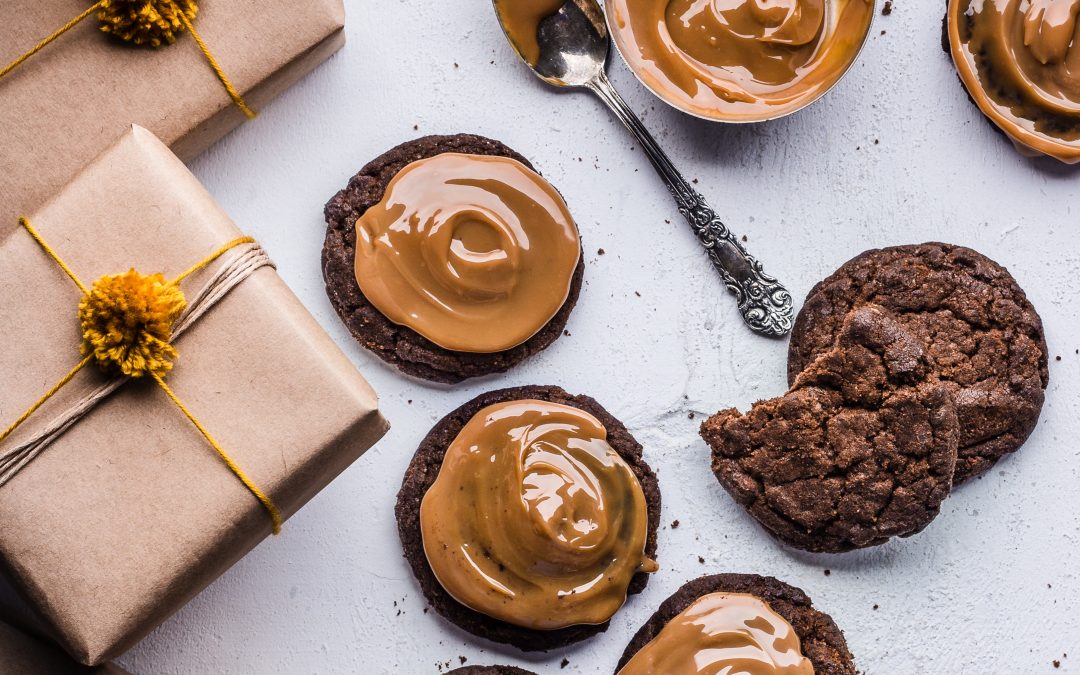
“Why I Can’t Stop Binge Eating”
Are you often wondering “why can’t I stop binge eating?” or “how do I stop eating compulsively”.
When go to our head to decide what we “should” eat, (e.g. asking “do I deserve this”, “will this fit into my calorie limit”, “is this good”), rather than eating what’s going to truly satisfy us (e.g. asking ourselves “am I hungry”, “will this satisfy me”, “will I feel deprived if I don’t eat this”), we create a disconnect between the mind and body, and run into trouble.
When clients first come to me asking “why can’t I stop binge eating”, they want to keep the restriction, but stop the binges.
Unfortunately, it doesn’t work like that.
Physical restriction (e.g. not eating enough) and mental restriction (e.g. placing a moral value on foods) can contribute to binge eating.
It’s often the foods people are actively trying to avoid, like sugar, that they find themselves binge eating on (sugar cravings anyone?). And if restriction is not working for you, then it might be time to look for a different approach.
So, what if I said to you that it was time to ditch all these rules and give yourself unconditional permission to eat whatever you like?
If you’re thinking…
“ummm, you mean everything like full fat dairy, chips and pastries? But, but, but … what about my health?”
You’re not alone.
This article will help you to understand “why I can’t stop binge eating”. Also, about how we can incorporate food in your life in a mindful, conscious way, without fear of eating chaotically and feeling out of control around food.
In order to create a healthy relationship with food one of the most important things is removing the moral value we attach to foods and giving ourselves permission to eat all foods. That’s right. All foods. Without restriction.
Internationally run self-care retreat, Green Mountain at Fox Run, states really nicely that: “many women aren’t totally sold on the idea that we’re allowed to eat what we want at first, thinking, “That’s exactly what brought me here to begin with.” But they do usually all agree that the alternative approach of restriction and deprivation hasn’t worked so well either.”
Yes, allowing all foods to be consumed may sound scary and downright crazy, especially because diet culture has led us to believe that some foods are “good” and some are “bad”. But it’s important to remember that by becoming an intuitive eater is not about letting go of your health.
It’s about making all foods normal, so you can enjoy eating all foods in moderation without episodes of binge eating or feeling out of control.
Having rigid rules around forbidden foods, paradoxically leads to greater restrictions, which then increases the chances of binge eating, leaving you to continue asking “why I can’t stop binge eating”. However, if we remove the food rules and allow all foods (especially previously forbidden ones) in our life the urgency and intensity to eat decreases (1). This phenomenon is called habituation, where repeated exposure to something eventually loses its appeal. Habituation can actually be experienced in other facets of our life. For example, when you buy a new car and first drive it out of the dealership, it’s exciting. But eventually, the novelty of the new car wears off.
This can also be applied in the context of food. So, for dieters, this means that the more a certain food is restricted, the higher the desire it is to eat because of the lack of exposure to it. If we can give ourselves full permission to eat all foods, then the “eat-this-now-before-you-never-let-yourself-eat-this-again” mentality is likely to dissipate.
Interestingly, studies show that people who follow food rules generally display perfectionist traits (2). And that makes sense, considering that perfectionism is where a person will place large emphasis on organisation and preciseness, set high personal expectations and be self-critical if personal accomplishments are not met (2).
So now that we understand why we need to give ourselves unconditional permission to eat, let’s break it down into simple steps of how to actually do it.
Step 1: Change of mindset: No food is morally better than another
Food is food! Let’s not label it as “good” or “bad” or demonise calories. This does not mean all food is nutritionally equal, however, it does mean all food is morally equal. Seeing all foods as equal, means your choice to eat a certain thing is not emotionally driven. So that means deciding to eat a cookie is equal to deciding to eat a salad. Neither one of those food choices has a higher moral value. If you want to eat the cookie, eat the cookie. If you want to eat the salad, eat the salad!
Step 2: Identify your “forbidden” food and practice giving yourself permission to eat it
Is there a particular food that you’ve previously not allowed yourself to have? It’s likely the food you find yourself bingeing on. Let’s name an example. Say your once “forbidden food” was ice cream. It’s now time to give yourself full permission to allow ice cream back into your life with a huge dose of curiosity.
For some clients, this is scary. They feel that if they give themselves permission to eat their forbidden food, they may never stop eating it. But keep an open mind, and follow the steps below.
So how do we manage this?
Firstly, when giving ourselves permission to eat, don’t do it when hungry! Because it’s near impossible to stop eating when you’re biologically hungry. So you could try this 30mins – 1hour after a meal. Also, perhaps try this in an environment where you feel safe, such as at work, in a restaurant, at someone else’s house, before bringing it into the home.

So, let’s use the ice-cream example. When you desire ice-cream, pause and check in with yourself about what is driving this desire. Are you sad, tired, angry, bored? Is it just convenient to have it?
Then have a think about the quality of the ice-cream. How will it make you feel afterwards?
Once you’ve checked in on these things, if you still decide to eat the ice–cream, then do so mindfully. That is, slowing down, getting rid of any distractions and truly tuning in as you take each mouthful. As you take bites, think about the texture, taste and smell. Try to really be in the present moment throughout the whole eating experience. If you tell yourself you’re never going to stop, it can be come a self-fulfilling prophesy. So keep an open mind.
Then once you’ve finished, carry on with your day and don’t give it another thought. A big part of this process is not allowing food to occupy our minds and think about it anymore than we have to.
Step 3: Make a plan for how you’re going to include the “forbidden foods” back into your life
Now that you know you can have your ice–cream whenever you choose, plan out when you would like to practice eating mindfully with it. This helps to avoid eating it impulsively. And remember, this is practice and it’s normal to not get it perfect! Some days you may end up eating more of the ice–cream than you would have liked, but that’s perfectly fine! This is about gaining confidence that you can trust your body and discover that no one food has power over you.
Giving yourself permission is a process. And it takes practice. If there are days where you overeat, instead of being critical, get curious about what was going on that day. The key is not to beat yourself up over it! After all, there are much worse things you could do than eat past the point of comfortable fullness…
If you’re still wondering “why I can’t stop bingeing”, and you’re looking for more information on how to stop food obsession, emotional eating, stress eating, yo-yo dieting, and how to start intuitive eating check out my FREE download. This will guide you through some of the first steps to support you through your food problems. You will learn how to stop food obsession, and how to start intuitive eating.

References
- Tribole E, Resch E. Intuitive Eating, 3rd ed. New York, NY: St. Martin’s Press; 2012
- Brown, A. J., Parman, K. M., Rudat, D. A., & Craighead, L. W. (2012). Disordered eating, perfectionism, and food rules. Eating Behaviors, 13(4), 347-353. doi:10.1016/j.eatbeh.2012.05.011





